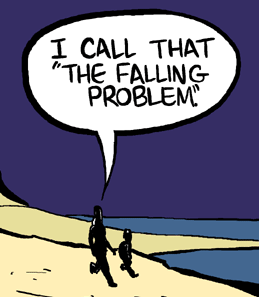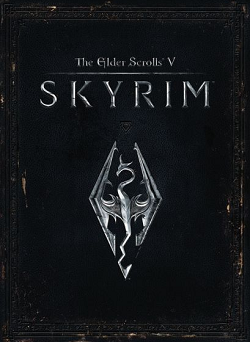Again, Dwarf Fortress pokes it’s ugly head up to beg “come play me”. And I keep asking myself, how important is it that I embrace loss?
But also, we’ve been playing Skyrim, which offers its own moral choices. I’ve played Grand Theft Auto. It’s like watching a gangster movie, and I can view the atrocious behavior of the main character as drama. If you join the Thieves Guild in Skyrim, you can expect to steal stuff. This kind of bugs my kids. It really bugs them if they accidentally harm an innocent–even though they know they can reload. Part of me wants to comfort them–it’s just a game afterall. And it’s a nice feature of the game that you can call do-overs. We use it as a context to argue about what’s right. It’s similar to many arguments during D&D games of my youth without the stupefying baggage of Gygax’s alignment system.
In life and drama, the following formula applies. Step 1: find two opposing beliefs held by your target. Step 2: bring that opposition into full consciousness. Step 3: be entertained.
Another game that has attracted attention in recent years is Dwarf Fortress, famous for its motto that “losing is fun.” In the game, you work to oversee an entire fortress of alcoholic dwarves, each with his or her own appearance, emotions, relationships, desires, skills, beard-grooming standards, and – eventually – gruesome deaths. In an e-mail interview, Dwarf Fortress’s creator, Tarn Adams, told me, “It’s important that people learn to embrace loss, or the world can’t be enriched by their passing.” Only by seeing how easy it is to accidentally drive a dwarf mad, leading them to throw themselves down a well, or how easily a poorly planned fort leads to war-wounded dwarf veterans dying without medical care, can you come to value their individual lives. The death of a dwarf is both tragic and common, which makes a dwarf’s survival against the odds worth celebrating. At the same time, if they live long enough to gain titles and to name their weapons, it is that much worse when the inevitable dragon attack cuts their life short.




